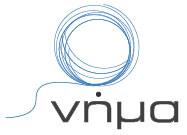Author: Lorella Viola, Research Associate in Linguistics and Digital Humanitiesat the Luxembourg Centre for Contemporary and Digital History (C2DH), University of Luxembourg

Αυτό το βιβλίο ανοικτής πρόσβασης αμφισβητεί τη σύγχρονη σημασία του σημερινού μοντέλου παραγωγής γνώσης. Υποστηρίζει ότι η πλήρης ψηφιοποίηση της κοινωνίας, η οποία επιταχύνθηκε απότομα από την πανδημία COVID-19, έχει προσθέσει ακραία πολυπλοκότητα στον κόσμο, εκθέτοντας πειστικά την ανεπάρκεια του σημερινού μας μοντέλου δημιουργίας γνώσης. Αντιμετωπίζοντας πολλούς από τους διαφορετικούς τρόπους με τους οποίους η πραγματικότητα έχει μετασχηματιστεί από την τεχνολογία – τη διάχυτη υιοθέτηση των μεγάλων δεδομένων, τη φετιχοποίηση των αλγορίθμων και της αυτοματοποίησης και την ψηφιοποίηση της εκπαίδευσης και της έρευνας – η Viola εξετάζει πώς η άκαμπτη εννοιολόγηση στη διαίρεση και τον ανταγωνισμό των επιστημονικών κλάδων είναι συνυπεύθυνη για την προώθηση μιας αφήγησης που έχει αντιστοιχίσει τις υπολογιστικές μεθόδους με την ακρίβεια και την ουδετερότητα, ενώ στιγματίζει τη συνείδηση και την κριτικότητα ως φορείς προκαταλήψεων και ανισότητας. Με επίκεντρο τις ανθρωπιστικές επιστήμες, η συγγραφέας ανιχνεύει τα σχίσματα στο πεδίο μεταξύ των ανθρωπιστικών επιστημών, των ψηφιακών ανθρωπιστικών επιστημών και των κριτικών ψηφιακών ανθρωπιστικών επιστημών∙ αυτά είναι ενσωματωμένα, όπως υποστηρίζει, σε παλιούς διχασμούς: επιστήμες vs ανθρωπιστικές επιστήμες, ψηφιακές vs μη ψηφιακές και αυθεντικές vs μη αυθεντικές. Μέσα από την ανάλυση προσωπικών περιπτώσεων χρήσης και τη διερεύνηση ποικίλων εφαρμοσμένων πλαισίων, όπως οι πρακτικές ψηφιακής κληρονομιάς, η ψηφιακή γλωσσική αδικία, ο κρίσιµος ψηφιακός αλφαβητισµός και η κρίσιµη ψηφιακή οπτικοποίηση, το βιβλίο δείχνει έναν τρίτο τρόπο: τη δηµιουργία γνώσης στα ψηφιακά.



